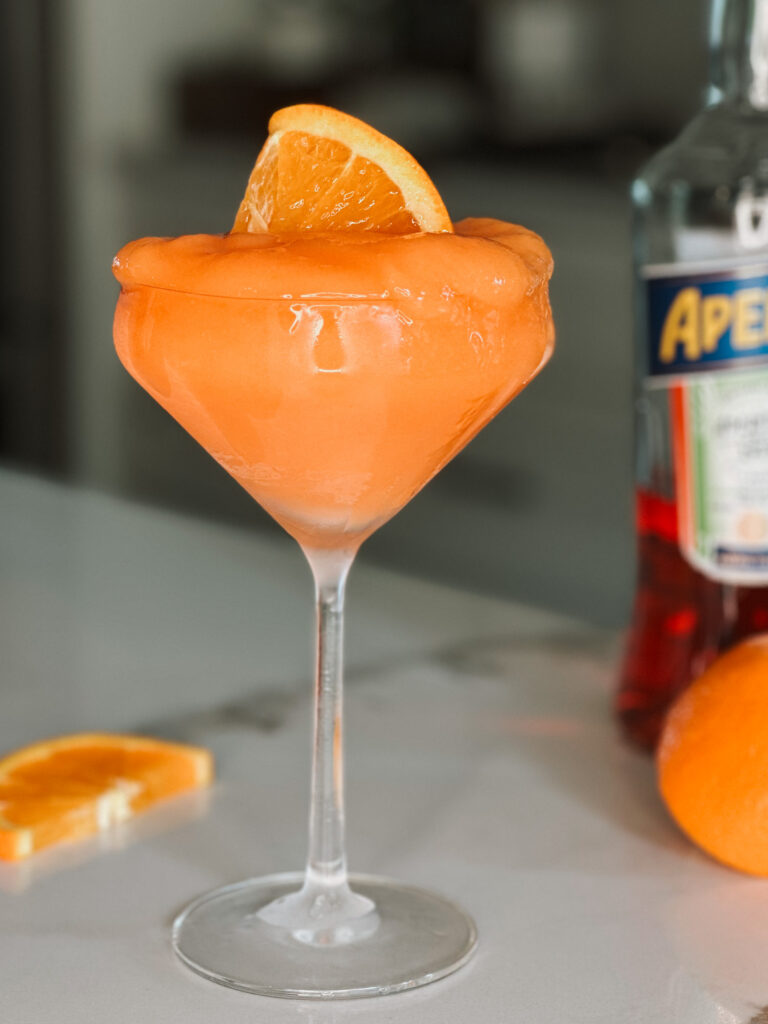
How I ended up feeding both of my girls in their first year of life looked completely different between both of my babes. I quickly learned that when it comes to breastfeeding (and almost every other aspect of motherhood) I had very little control over how things eventually played out. Birthing plans, decisions of how I’d feed my babies, methods on how I would raise my children… I thought as a mom you got to make all the choices, HA! Boy did God say, yeah right to that! While you will make many decisions, there are also many times when as things unfold you’ll just learn to take the cards you’re dealt and roll with them from there.
That being said, let’s chat feeding your baby. I’m a firm believer (and by no means an expert) that the priority at the end of the day should always be, make sure your baby is fed. I totally believe in the science that supports many benefits to babies getting breastmilk, but at the end of the day your little ones will survive and thrive as long as they are receiving nutrients. Period. That being said, I encourage you to educate yourself on breastmilk and formula, deciding then the path that is right for you.
My path involves it all! Boobs, pumps, bottles, formula… you name it, I’ve done it! With Kennedy I exclusively pumped for 4 months, and created enough of a stash that she had breastmilk until 6 months before switching to formula. With Adeline I was able to breastfeed, pumping only to relieve excess and build a stash, but also recently incorporated formula at 5 months. She still breastfeeds, but also will get breastmilk or formula via a bottle.

Breastfeeding:
We all know the benefits. How miraculous the female body is at adjusting the makeup of your breastmilk based on your babies needs in that very moment. So, since we all know those pros let’s talk some of the other aspects of breastfeeding. IT FREAKING HURTS in the beginning. Like full on torture to some extent. Adeline had a beautiful latch with absolutely no issues from the second she popped out. Literally guys… the second she was in my hands she latched perfectly and there was no turning back. The same cannot be said for Kennedy. She wanted nothing to do with my boobs and I was too much of a wreck to try and fight her on it. I gave in very quickly, and decided that with the combination of this being my first baby & struggling with postpartum that it wasn’t the fight I wanted to battle and I would exclusively pump instead (we’ll get to that later). That being said… oh, it hurts! Not only will your nipples inevitably crack and get sore in the first few days/weeks because of the new stress they are under, but also the production of milk pumping (ok, more like bursting) through your ducts is very painful until your supply regulates. I had a very heavy supply with both girls and this caused increased pain as I was essentially constantly engorged for two weeks despite breastfeeding and pumping nonstop! It does get better though.. so if you have the courage, support, and emotional stability – keep on trying!! By 6 weeks you will notice a DRASTIC difference as your body regulates its output based on your babies needs. Plus cluster-feeding dies down some (dude, screw cluster-feeding….. seriously!). The convenience of breastfeeding is unparalleled. Having about 10 less things to lug around (no bottles, pump parts, a pump, cooler bags, etc.) can’t be beat. I will say for me personally I had built up the hype about how wonderful and euphoric a breastfeeding bond would be with my baby. I mean, I did love it and it was sweet but honestly… let’s be real, it’s not like it’s this out of body experience y’all! Granted, I did have a 2 year old jumping on my back, crying for my attention, and smashing toys on mine and the babies head.. so who knows maybe I’m not a reliable source for that.
Pumping:
On to pump, or as I liked to refer to it.. my ball and chain. Exclusively pumping is TOUGH SHIT guys! Easily one of the most difficult, time consuming, exhausting methods of feeding your baby. I struggled big time emotionally because of my decision to exclusively pump. The convenience was not there, and the choice to do this should be a last resort if you’re just desperate to give your baby breastmilk. That being said, it can be so tough as a first time mom to do this and I have to be honest that it slightly ruined my newborn experience the first go around. Feeding times were doubled, if not tripled. You have to feed the baby, then pump for 20-25 minutes, then clean and sanitize the pump parts. Don’t forget the additional time to thaw milk as well. Ugh, multiply that process by 6-8 times a day in the beginning and you can start to see why I literally felt as though my life revolved around that dang motorized plastic box and suction tubes. There were literally moments in the middle of the night when I envisioned taking those plastic tubes and strangling my husband who was so peacefully sleeping next to me. All while I bawled tears of stress, physical pain, exhaustion, mixed with a crying baby in my arms. When it was time to finally start getting out of the house and doing stuff (for my sanity) around Kennedy turning a month or two old, I had to carry that darn pump everywhere. One thing they don’t tell you about exclusively pumping is that you inevitably produce the maximum amount of milk your body will produce for as long as you are pumping because these pumps are meant to be efficient in emptying you. When you breastfeed your body regulates to the babies needs which is sometimes less and sometimes more, but when you exclusively pump your body just assumes you have some monster baby that WANTS IT ALL! Cue, massive milk supply. So while that’s great and all, it also meant that a handheld manual pump Did. Not. Cut. It! So when I went out to a Christmas work party, or a lunch date, or shopping trip it meant the entire system went with me!
*mega eyeroll*
The takeaway I want to give here is that while many women do this method of feeding, and it’s wonderful because their babies are getting breastmilk. Remember that at the end of the day your baby needs a mother who is healthy mentally. Stress hormones do transfer in your milk so if this method of feeding is causing more stress than it is good… maybe it’s best to consider some formula!
Formula:
I have a love hate relationship with formula. It’s the most convenient method of feeding your baby, but also the most frustrating since we live in a country (USA for any foreign followers I may have) that does not ban some pretty disturbing things in formula. Again, here is where I will make you aware of my opinions but urge you to do your own research.
When I fed both of my babies breastmilk they would go up to two weeks without pooping which is normal for breastfed babies. The way our bodies work allows the milk to provide your baby with exactly what they need and if they breastfeed they even go one step further to getting the exact amounts they need. This results in very little waste. Formula is obviously different. It’s created to satisfy babies across the board with a wide range in age, size, and nutritional needs. Therefore the likelihood they are getting a few more vitamins or minerals than they need is higher. It’s not harmful, but it just means their bodies will poop or pee out the excess.
Fine, but what does that mean for you.
Lactose is the natural sugar that is present in both breastmilk and cows milk. Many parents think their children have a lactose intolerance or that they need sensitive formula when in reality most babies getting formula for the first time are going to have an adjustment period that results in some digestive changes, weird poops, and maybe gassiness or constipation. It doesn’t mean they need sensitive formula necessarily, but they do need a period of time to regulate to a totally different kind of food that they are receiving for the first time in their lives. Imagine if you never had meat and one day you tried it… your body too would need to learn to digest this new food.
This all leads to the problem I have with sensitive or lactose free formulas produced in the US. They substitute lactose with corn syrup. In fact, the first ingredient in many of the big name formula brands you’ll find is corn syrup. Now, we don’t give our toddlers fruit cups with syrup, the yogurts that are filled with sugar, or sodas anymore but we are okay with giving our newborn infants CORNSYRUP? Nope, not I. Studies show a significant increase in childhood obesity, dependency on sugar, and diabetes linked to our nations addiction to corn syrup or sugar in general. So, this is why I say do your research on formulas. There are good formulas out there! I used Holle which is produced in Germany (the EU has much stricter regulations on what can be placed in their food/baby formula). They ban the use of a few other harmful ingredients that are sadly found in most brands in the US. Also, I most recently did research on Costco’s Kirkland brand formula. While it does still have a few other ingredients I don’t love, it at least uses lactose over corn syrup and is much more reasonable in price than the Holle brand.
No, your baby won’t die or suffer if you use a different formula but my philosophy with formula and all food I feed my child is that I want to be knowledgeable about what I am putting into their bodies. What I do once in a while won’t hurt them, but over time repeated abuse of their bodies through harmful things will add up. So if I have a choice and can simply pick between A and B, then I’m going to learn about them both and pick the best option! As I would do with any other decision for them in life.
I hope this post provides you some insight into feeding your babies. Clearly, there is no right or wrong way, but there is a best way that will work for you! I want this to hopefully help you make a decision on what that process looks like personally. Keeping in mind that feeding your baby in that first year of life will be one of the biggest pieces of being a new or repeat mom.











